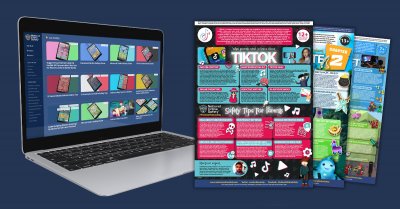- About Us
- The Schools
-
Admissions
- Armed Forces Covenant
- Acceptance Form
- Admissions Process and Key Dates
- College Transport
- Ellesmere College 'Virtual Tours'
- Fees
- Insurances and Fees Refund Scheme
- International Students
- Methods of Payment
- New Parent Information
- Registration Form
- Scholarships & Bursaries
- Start of Term Arrangements
- Uniform
- Pupil Area
-
Parents' Area
- Catering
- College Policy Documents
- College Transport
- Ellesmere Newsletter
- External Examinations
- Fees
- Holiday Camps at Ellesmere
- In Touch
- Inspections
- Insurances and Fees Refund Scheme
- Methods of Payment
- New Parent Information
- Open Days & Events
- Parent Portal
- Parents' Society
- Scholarships & Bursaries
- Terms & Conditions
- Uniform
- Busnet
- Ellesmere Community

 Ellesmere College Student Views - Alice Yang (China)
Ellesmere College Student Views - Alice Yang (China)

 Ellesmere College Student View - Lewis Hall
Ellesmere College Student View - Lewis Hall

 Ellesmere College Football Academy
Ellesmere College Football Academy

 Ellesmere College Rugby Academy
Ellesmere College Rugby Academy

 Explore the Ellesmere Difference UK
Explore the Ellesmere Difference UK

 Ellesmere College - Aerial View
Ellesmere College - Aerial View

 Edoardo and Tommaso
Edoardo and Tommaso

 Tapaswini & Vanessa
Tapaswini & Vanessa

 Student Views - Vansh Bajaj
Student Views - Vansh Bajaj

 Speech Day 2015
Speech Day 2015

 Student Views - Richard Lay
Student Views - Richard Lay

 Student Views - Cassie Champrasit
Student Views - Cassie Champrasit

 Chapel Choir
Chapel Choir

 Return To The Forbidden Planet Trailer
Return To The Forbidden Planet Trailer

 Talbot House 'I'm A Believer'
Talbot House 'I'm A Believer'

 Students View - Tilly Walker
Students View - Tilly Walker

 Students View - Peter Von Hoven
Students View - Peter Von Hoven

 Students View - Ben Williams
Students View - Ben Williams

 Student Views - Alice Tow
Student Views - Alice Tow

 Ellesmere College Presents Romeo & Juliet
Ellesmere College Presents Romeo & Juliet

 Lower School
Lower School
- Handbook for Parents
- Alcohol Policy
- Anti-Bullying Policy
- Anti-Smoking Policy
- CCTV Policy
- Child Protection Policy
- Complaints Procedure for Parents
- Curriculum Policy
- Discipline (Behaviour) Policy
- Education Guardianship Policy
- Equality Policy
- Exclusions Policy
- First Aid Policy
- Individual Music Lessons
- Information Security Policy
- Missing Pupil Policy
- Mobile Phone Policy - September 2023
- Privacy Policy
- Relationships and Sex Education
- Remote Education Statement
- Safeguarding: On-line E-Safety
- Safeguarding: Online Sexual Harassment
- Spiritual, Moral, Social and Cultural Education including Relationship and Sex Education Policy
- Staff Protection Policy - September 2023
- Substances and Drugs
- Terms and Conditions
- Travel Insurance for College Trips
- Teaching and Learning
Safeguarding: On-line E-Safety
In today's technological and social media age, children now have access to unlimited resources on their mobile phones, tablets, desktops and laptops. Whilst much of this use can be beneficial, for educational purposes, communication, recreation and hobbies, etc, there is also the risk that it can be used for harmful purposes - and we need to educate both ourselves and our children to the risks and dangers that are not always apparent when we first log on.
We encourage parents and children to consider the three basic 'Cs' when posting or reading content on line - wherever it may be:
- CONTENT: be aware of illegal, inappropriate or harmful material that your child may be accessing
- CONTACT: be aware of contact via the device - who is it, age, what are they saying: is it harmful, abusive, or hateful
- CONDUCT: be aware of online behaviour that increases the likelihood of, or causes, harm to themselves or others.
As a school, we have very clear boundaries on using phones and the internet during school hours (and boarding hours), and we have policies that can be accessed by all here: E-Safety Policy. There are also clear guidelines published on appropriate ages for signing up to certain social media sites, and age appropriate games that you should make yourself aware of due to the nature of the content in those games including: violence, sexual nature, drugs, gambling, racism, grooming, radicalisation, etc.
As a parent, you can also limit the time your child spends on a daily basis on their mobile device or laptop, and you can also install parental controls that block the viewing of particular sites and materials for underage users.
Above all, be open and honest with your child and help them learn how to use the internet in a safe and respectful way, remembering that whatever your child posts to the internet will never go away.
National Online Safety - Guides for Parents
To help parents navigate the many social media sites, apps, games, and messaging apps now available on the internet and through mobile devices, and to provide support in general for internet use, etiquette and safety, we have teamed up with National Online Safety - an organisation who work with schools and school staff, parents and children, equipping them with the knowledge they need to understand online dangers and how best to react should an incident arise and ultimately to make the internet a safer place for children.

We hope that you find the downloads available on this page useful material in helping you increase your knowledge and that of your children when using the internet and social media in the future.
Downloadable Guides to On-Line Safety
From time to time, the links on this page may be updated or added to as updated material becomes available.
More information on 'Guides to On-Line Safety' can be found here: National Online Safety
Should you wish to discuss any area of E-Safety in more detail please contact the 'E-Safety Committee' (chaired by Deputy Head Pastoral) via your child's Tutor in the first instance.
For further guidance on e-safety matters, please use the following website for further information and support. https://www.gov.uk/government/organisations/uk-council-for-internet-safety
It is important to be vigilant on such matters and we as a College will regularly audit our filtering and monitoring systems to ensure they are effective at all times. Further information to support parents with information on filtering set-ups can be found at https://saferinternet.org.uk/
We also strongly advise parents to ensure they have filtering and monitoring provision on their home internet and their child's phone. https://www.internetmatters.org/parental-controls/smartphones-and-other-devices/
The College aims to protect and educate pupils in their use of technology and to have in place appropriate mechanisms to intervene and support students should an incident occur. Our E-Safety Policy and Acceptable Use Policy can be downloaded below, along with Britannica's Guide to E-Safety.
E-Safety Policy - September2023
Acceptable Use Policy - Pupils and Parents
Britannica's Guide to E-Safety

 House Singing Competition
House Singing Competition  Sport at Ellesmere
Sport at Ellesmere  Tennis Academy
Tennis Academy  Life at Ellesmere
Life at Ellesmere  Boarding Life
Boarding Life  Sixth Form
Sixth Form  The Arts
The Arts  CCF/DofE Adventure Training
CCF/DofE Adventure Training  Why Louis Chaudron joined Ellesmere College
Why Louis Chaudron joined Ellesmere College  International Admissions
International Admissions